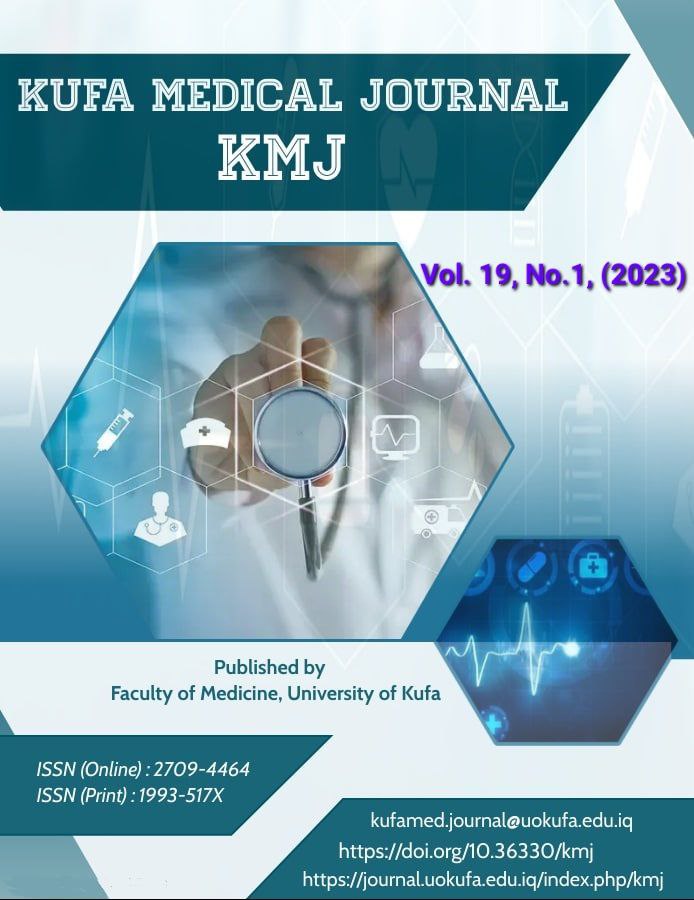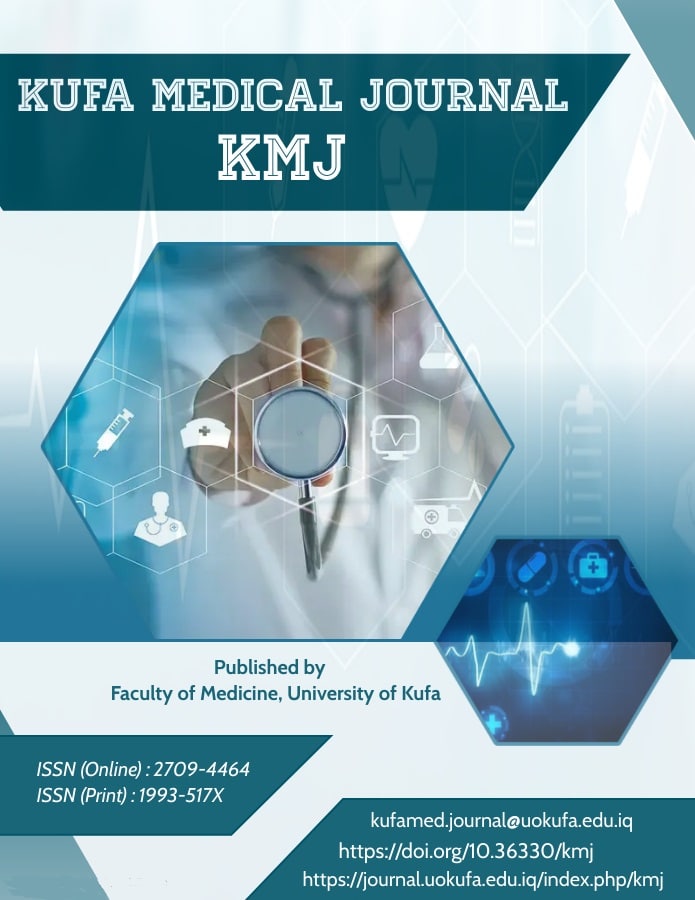Body Mass Index Categories Among Pregnant Women Attending Primary Health Care Centers / Baghdad 2022
DOI:
https://doi.org/10.36330/kmj.v19i1.12078Keywords:
BMI, Gestational, Pregnancy, Weight GainAbstract
Background: Recommended weight gain to support a healthy pregnancy vary by prepregnant body mass index. Insufficient weight gain especially associated with prepregnant underweight is associated with increased risk of spontaneous preterm delivery, small for gestational age. Extensive weight gain often results in large for gestational age babies also may increase risk during delivery. Good nutrition and a healthy diet during pregnancy are critical for a mother’s health, as well as that of her child. A healthy diet contains adequate energy, protein, vitamins and mineral obtained from a variety of foods including green and orange vegetables, meat, fish, beans, nuts, whole grains, and fruit. Many studies have suggested that weight gain during pregnancy is affected by prepregnancy BMI. This study is conducted to determine maternal weight gain, pattern and associated of some selected socio-demographic factors. Method: A cross-sectional analytic study wholly done from July 4th to December 20th; the sample size was 114 pregnant antenatal care files archived selected from primary health care centers. It searched for the full previous pregnancy files and with frequent visits from the beginning of pregnancy to birth. The data and information were collected from antenatal care files from six primary health care centers of As-Salam, AL-A’dil, AL-Mansour, AL-A’dhamiya 3rd, AL-Baladiyaat, AL-Mustansiriya. The exclusion criteria exclude all incomplete files, pregnant women less than 18 years, and pregnant with chronic disease multiple pregnancy. Frequencies and percentage were calculated; Chi square test were used; and the statistical probability were consider significant if P value < 0.05. Results: The current study was conducted through 114 pregnant care files or antenatal care in 6 primary health care centers. 73% of them gained excessive weight during pregnancy; 11% of them gained insufficient weight gain during pregnancy; and 17% of pregnant women had adequate weight gain during pregnancy. There was a statistically significant association between weight gain during pregnancy and primary health care centers, as representing social factor, and also significant association between pre pregnancy BMI and gestational weight gain. Conclusion: Gestational weight gain was significantly affected by pre pregnancy body mass index. Prevalence of excessive weight gain increases with the increase of the pre-pregnancy body mass index and with the increase of age in pregnant women. Weight gain during pregnancy should be monitored and intervention should be developed.
Downloads
Downloads
Published
How to Cite
Issue
Section
License
Copyright (c) 2023 Zainab Ghassan Lutfi

This work is licensed under a Creative Commons Attribution 4.0 International License.
which allows users to copy, create extracts, abstracts, and new works from the Article, alter and revise the Article, and make commercial use of the Article (including reuse and/or resale of the Article by commercial entities), provided the user gives appropriate credit (with a link to the formal publication through the relevant DOI), provides a link to the license, indicates if changes were made and the licensor is not represented as endorsing the use made of the work. The authors hold the copyright for their published work on the KMJ website, given that KMJ is responsible to appreciate citation for their work, which is released under CC-BY-4.0 enabling the unrestricted use, distribution, and reproduction of an article in any medium, provided that the original work is properly cited.












